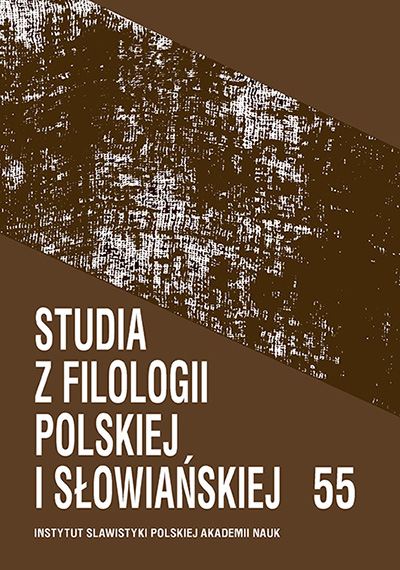Významové obměny a vývoj funkcí u příslovcí dokona a dokonce v barokní češtině
Semantic Shifts and the Development of Functions of the Adverbs dokona and dokonce in Baroque Czech
Author(s): Markéta KlimešováSubject(s): Language and Literature Studies, Theoretical Linguistics, Semantics, Philology
Published by: Instytut Slawistyki Polskiej Akademii Nauk
Keywords: adverb; Baroque Czech; semantic shifts; transitions among parts of speech
Summary/Abstract: The adverbs dokona and dokonce went through a similar process of etymological and semantic development. Both of them were relatively often used by Baroque authors to mean ‘úplně, zcela’ (‘fully, completely’), and – when used with negated verbs – ‘vůbec’ (‘at all’). Whereas dokona gradually became obsolete, dokonce is currently one of the most frequent means of expressing and emphasising graduation. Although these functions are not recorded in Jungmann’s dictionary, this article demonstrates that both dokona and dokonce had these features already in Baroque texts. It is evident, then, that the Baroque period is an important stage in the development of the Czech language, and that it must not be overlooked in linguistic studies.
Journal: Studia z Filologii Polskiej i Słowiańskiej
- Issue Year: 2020
- Issue No: 55
- Page Range: 1-10
- Page Count: 10
- Language: Czech

